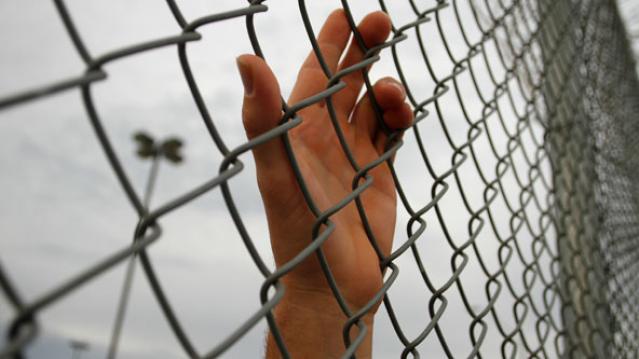Doctors to Trump: Deporting Illegal Immigrants Would Be Bad for U.S. Health

The American College of Physicians has a message for Donald Trump and any other presidential contender advocating for mass deportation of illegal immigrants: Any plan to kick out those 12 million people from the country could have severe public health consequences.
On Tuesday, the doctors’ group, which represents 143,000 internists, released a statement urging physicians to take a stand against proposals for mass deportation.
Related: Vast Majority of Americans Say Illegal Immigrants Should Stay
“Large-scale deportation of undocumented residents would have severe and unacceptable adverse health consequences for many millions of vulnerable people,” Dr. Wayne J. Riley, the groups’ president, said in a statement. “Numerous studies show that deportation itself, as well as the fear of being deported, causes emotional distress, depression, trauma associated with imposed family separations, and distrust of anyone assumed to be associated with federal, state and local government, including physicians and other health care professionals providing care in publicly-funded hospitals and clinics.”
That distrust, in turn, could result in sick people not getting medical attention, and in cases of patients with infectious diseases, it could even lead to a public health emergency with tremendous costs to the to the overall health care system, the group warned.
On the other hand, having illegal immigrants in the country carries health care costs, too. Medicaid pays around $2 billion a year for emergency treatment for illegal immigrants, Kaiser Health News reported in 2013, adding that the total represents less than 1 percent of total Medicaid costs.
Related: Birthright Citizenship, the New Immigration Scam
Still, the American College of Physicians said doctors have an ethical obligation to advocate for the health interests of all people, without consideration of their residency status.
“Physicians and other health professionals must remind politicians and policymakers that deporting millions of vulnerable people would have adverse health care consequences, not only for the people directly affected and their families, but also for their local communities and for the United States as whole,” Riley said in the statement. “Instead, we need a balanced immigration policy that ensures access to healthcare for all U.S. residents while recognizing that we need appropriate controls over who is admitted.”
Top Reads From The Fiscal Times
- The 10 States with the Worst Roads
- 5 Reasons the Trump Immigration Plan Doesn’t Pass the Reality Test
- Scott Walker Adjusts His Immigration Stance. Again.
Stat of the Day: 0.2%

The New York Times’ Jim Tankersley tweets: “In order to raise enough revenue to start paying down the debt, Trump would need tariffs to be ~4% of GDP. They're currently 0.2%.”
Read Tankersley’s full breakdown of why tariffs won’t come close to eliminating the deficit or paying down the national debt here.
Number of the Day: 44%

The “short-term” health plans the Trump administration is promoting as low-cost alternatives to Obamacare aren’t bound by the Affordable Care Act’s requirement to spend a substantial majority of their premium revenues on medical care. UnitedHealth is the largest seller of short-term plans, according to Axios, which provided this interesting detail on just how profitable this type of insurance can be: “United’s short-term plans paid out 44% of their premium revenues last year for medical care. ACA plans have to pay out at least 80%.”
Number of the Day: 4,229

The Washington Post’s Fact Checkers on Wednesday updated their database of false and misleading claims made by President Trump: “As of day 558, he’s made 4,229 Trumpian claims — an increase of 978 in just two months.”
The tally, which works out to an average of almost 7.6 false or misleading claims a day, includes 432 problematics statements on trade and 336 claims on taxes. “Eighty-eight times, he has made the false assertion that he passed the biggest tax cut in U.S. history,” the Post says.
Number of the Day: $3 Billion

A new analysis by the Department of Health and Human Services finds that Medicare’s prescription drug program could have saved almost $3 billion in 2016 if pharmacies dispensed generic drugs instead of their brand-name counterparts, Axios reports. “But the savings total is inflated a bit, which HHS admits, because it doesn’t include rebates that brand-name drug makers give to [pharmacy benefit managers] and health plans — and PBMs are known to play games with generic drugs to juice their profits.”
Chart of the Day: Public Spending on Job Programs

President Trump announced on Thursday the creation of a National Council for the American Worker, charged with developing “a national strategy for training and retraining workers for high-demand industries,” his daughter Ivanka wrote in The Wall Street Journal. A report from the president’s National Council on Economic Advisers earlier this week made it clear that the U.S. currently spends less public money on job programs than many other developed countries.

